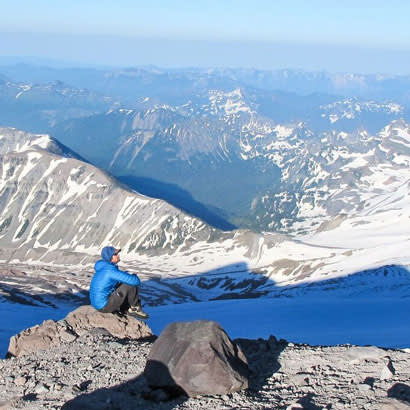
I am beginning the last semester of my 43-year tenure in higher education. When I returned to the United States from my military service during the Vietnam War, I was disillusioned with people. I decided that what mattered most to me was saving wilderness, and after completing graduate school at the University of Michigan and the University of Minnesota, I dedicated myself to doing just that through teaching, scholarship and service. Now, after three gratifying postings at San Diego State University (20 years), Florida International University (9 years) and the University of Utah (14 years), it is time for me to take my leave and report on the principal lessons I have learned.
Chief among them is the realization that individuals who serve this profession are fortunate to be able to focus on what is right with people. While other professionals — doctors, lawyers and such — typically are called on to help people after something goes awry, park and recreation professionals are charged with helping people before something goes awry by providing them with enjoyable health-promoting opportunities to grow and develop as human beings. Even therapeutic recreation professionals emphasize strength-based interventions that capitalize on their client’s innate abilities to overcome challenges. The entire park and recreation profession, then, caters to the better angels of our nature, and our work is characterized by enthusiasm, optimism, and hope for the future. That is something to be recognized, cherished and celebrated by all who choose this most important area of human service as their career path.
I have also learned that anyone who views parks and recreation as “frosting,” as a subject matter that warrants attention only after life’s “more purposeful” concerns are addressed, simply doesn’t understand the significance of leisure in our lives. I have come to appreciate over the years that individuals who devote their lives to this profession are dealing with the same problems confronting most any other profession. Park and recreation professionals simply confront them in the context of freely chosen activities. Philosophy, ethics and moral reckoning are at the heart of our professional challenges just as they are in medicine and law.
I have also learned that people who dedicate their lives to this area of human service could have been successful in any line of work. Indeed, as I said several years ago in the inaugural Academy of Leisure Sciences George Butler Lecture, “There are poets among us like Geof Godbey, stand-up comedians like Ellen Weissinger, art collectors like Peter Witt, band members like Karla Henderson, connoisseurs of fine wine like Doug Sessoms, ministers like Jack Kelly, and even concert violinists like Max Kaplan once was . . . We are, all of us, toilers in the field, and like George Butler, we are, all of us, three-dimensional beings with layer upon layer of complexity woven into the fabric of our lives . . .There is more to us than meets the eye, more to us than we are given credit for, and more to us to delight in.”
In many respects, we park and recreation professionals are ahead of our time, which is to say that those of us who serve the profession understand more than the people we serve that parks and recreation are at the heart of what it means to live a quality life. Having said that, I am confident, however, that our time is coming, and that as we increasingly document the benefits of the services we provide scientifically, the promise of leisure will eventually be within reach of us all.
Finally, I want to acknowledge the role that park and recreation professionals have played in restoring my faith in people, a faith that was undone by my military experience, a faith that was gradually rebuilt by this profession doing good for other people and for the environment that sustains us. As I exit stage left, I envision a strengths-based future founded on the increasing recognition that human health and environmental health are intertwined, and that the role of park and recreation professionals is to demonstrate their mutually supportive nature through the work we do. To that end, I wish each and every one of you the very best of success.
Daniel L. Dustin, Ph.D., is a professor of outdoor recreation studies at the University of Utah. A former President of the Society of Park and Recreation Educators (1989) and the Academy of Leisure Sciences (1997-98), Dustin received NRPA’s Literary Award in 1993, and was awarded the Cornelius Amory Pugsley Medal in 2020 by the American Academy for Park and Recreation Administration for his contributions to environmental conservation. Dustin has authored and edited 15 books, 30 book chapters, and more than 200 journal articles focusing on the park and recreation profession.

